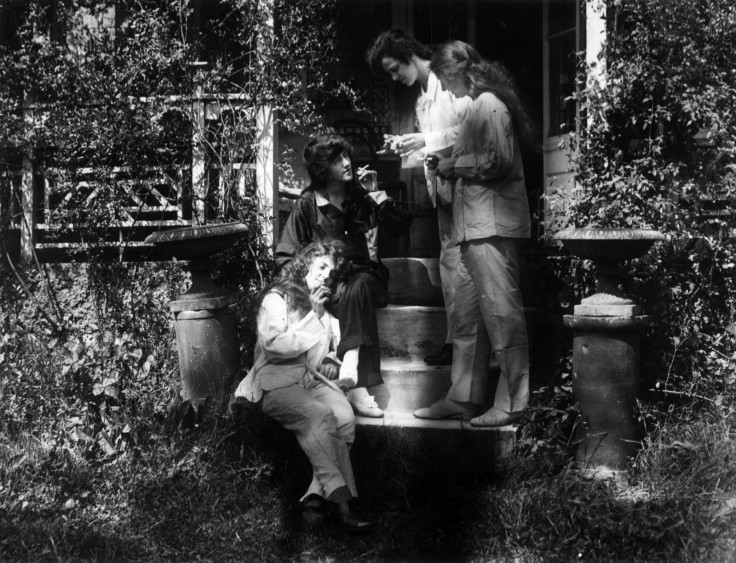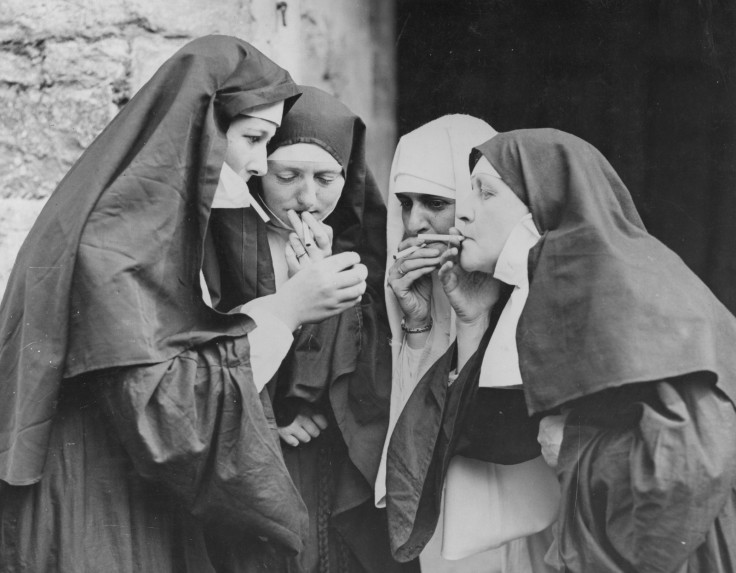New York once made it illegal for women to smoke in public because it was not respectable
But men were still free to light up at will.

Women in New York were once forbidden from lighting up in public under a controversial law at the turn of the 20th century.
Smoking was however allowed and common among men, be it cigarettes, cigars or the pipe, and growing increasingly popular among women as well.
By 1907, Café Martin, a restaurant frequented by New York's elite announced it would allow women to smoke on its premises on New Year's Eve, which encouraged other businesses to follow suit, but the equality would soon be short-lived.
On 21 January 1908, Little Tim Sullivan - a politician who controlled New York's East Side - proposed an ordinance that would make it illegal for women to smoke in public.
The reason behind the prohibition was neither health nor concerns for passive tabagism. It was because women who smoked were usually actresses, prostitutes or belonged to the working class, thus considered less respectable than high society matrons.
"Uptown there are restaurants all fixed up in gilt and glass that pass under the name of respectable, and these restaurants are going to allow some women to shock other women by puffing cigarettes right out in the dining room," Sullivan told New York City's Board of Aldermen, "I think this is not for the best interests of the women of this city."
His assertion was however untrue. Many 'respectable' women from wealthy families enjoyed a puff alongside men who smoked all the time.
But, although critics argued the board should concern itself with taking care of the poor rather than these "nonsensical things". Although others were of the opinion the ban ought to be extended to men as well, the ordinance was adopted unanimously.
The day the ban came into force, the New York Times published a piece titled: "Will the ladies rebel?" and the issue was debated at length in the city's newspapers.
Under the new law, women were prohibited from smoking in public establishments like restaurants and hotels. If one was to light up, a member of staff would tap on her shoulder and ask her to "please, put it out". The ban did not prohibit smoking in the streets, however, it was interpreted as such, and one woman even got arrested.
Katie Mulcahey was arrested as she was striking a match against a wall to light her cigarette. She was ordered to pay a five-dollar fine for the offence and jailed if she failed to pay up. At her hearing, she reportedly told the judge: "I've got just as much right to smoke as you have. I have never heard of this new law and I don't want to hear about it. No man shall dictate to me."
The ordinance only lasted two weeks before being vetoed by the New York City council. The mayor was not too keen on telling women what to do, at least when it came to smoking.
The board of Alderman attempted to introduce another female smoking ban later, but the city's chief legal officer vetoed it and announced that women could smoke at will on the city's streets and establishments.
In 2002, a smoking ban branded the The Smoke Free Air Act which applied to all sexes was introduced by then New York mayor Rudy Giuliani.























